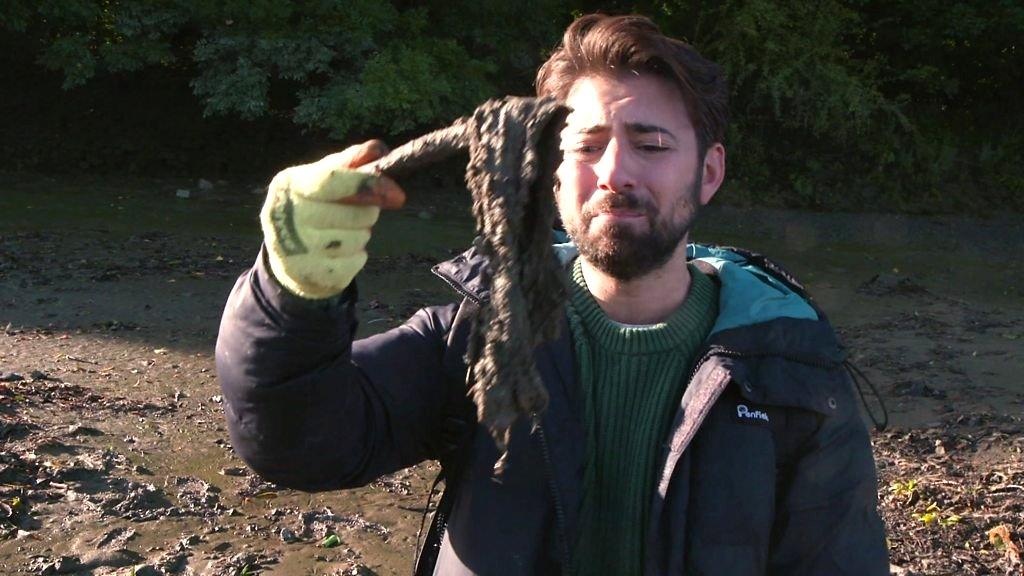Otters: The number of otters is declining according to new national survey in Wales
- Published
- comments
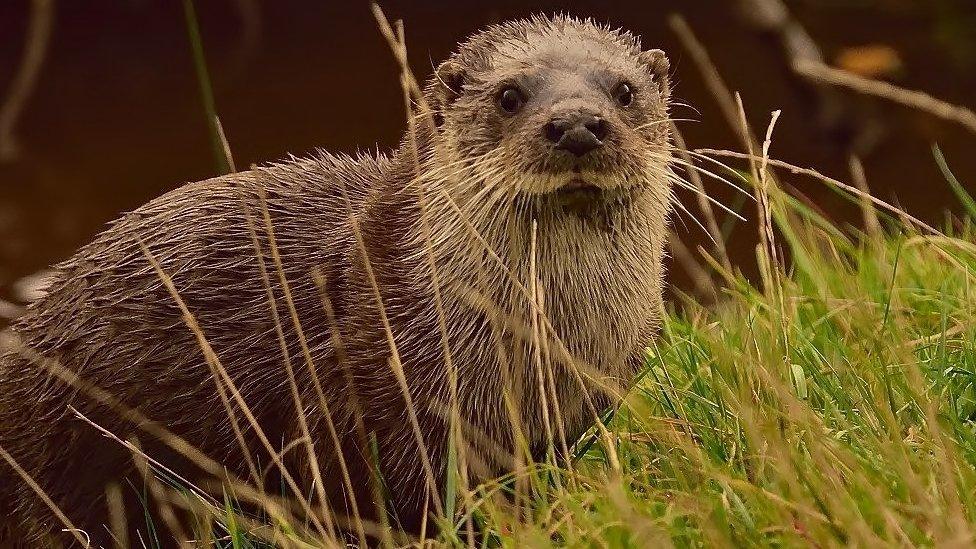
A survey has found a decline in the number of otters in Wales.
A big national survey done across Wales found fewer signs of the mammal on nearly all waterways.
The number of otters had only recently been increasing, after they were wiped out in the 1950s and 60s.
The results are being described as a "wake-up call" about the state of UK rivers and the pollution. Researchers will now look at otter numbers in England.
In the late 1950s and 60s otter numbers suddenly declined and it was thought it was because of pollution from pesticides but their numbers improved again after the pesticides stopped being used.
This recent report by Cardiff University and Natural Resources Wales (NRW) found evidence of a significant decline in otter populations for the first time.
Researchers looked for signs of otters, such as footprints, poo and hiding places. They found them at only 70 percent of the sites visited across Wales - that is down 22 percent since the last survey in 2010.
What does the survey tell us?
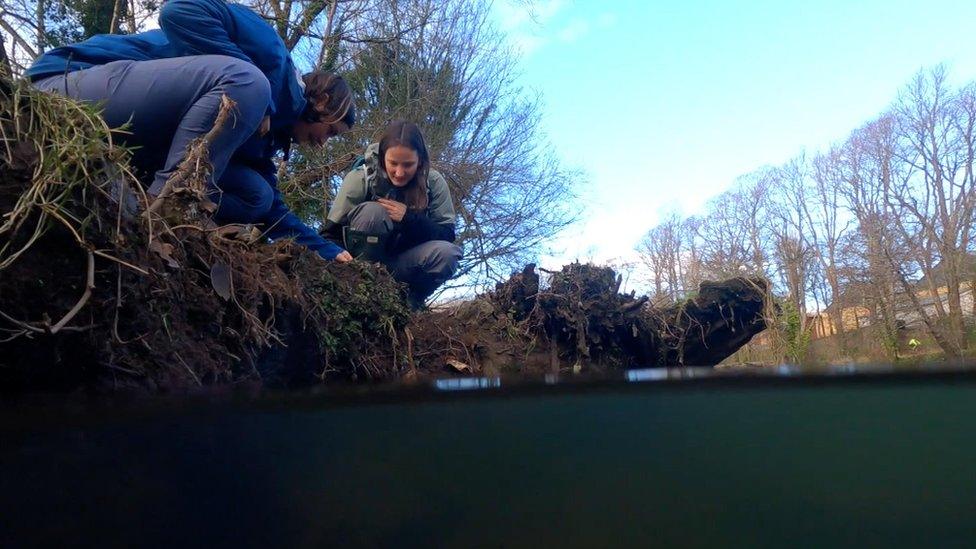
Researchers looked for otter footprints and droppings
Dr Eleanor Kean, a ecologist who worked on the survey, said this piece of work was important to check on the otters numbers.
"We're not back to situation we saw in the 1970s but it is a warning to us that something may be going wrong," said Liz Halliwell, from NRW.
Halliwell added that the otter was "an important biological indicator of the health of rivers and wetlands".
Graham Scholey from England's Environment Agency (EA) said the Welsh study highlighted the need for an up-to-date assessment across all UK nations.
We almost lost this iconic mammal over much of the UK in the not too distant past. This decline, if widespread and sustained, could signal a much more insidious threat to the health of our river ecosystems
Now, the Environment Agency (EA) and Natural England, alongside the Mammal Society, will fund a national survey of otters in England.
It is not yet clear why the numbers have declined, but an expert group has been set up by NRW to investigate.
They will look at different factors including; changes in habitat quality, availability of prey and pollution.
The state of UK rivers
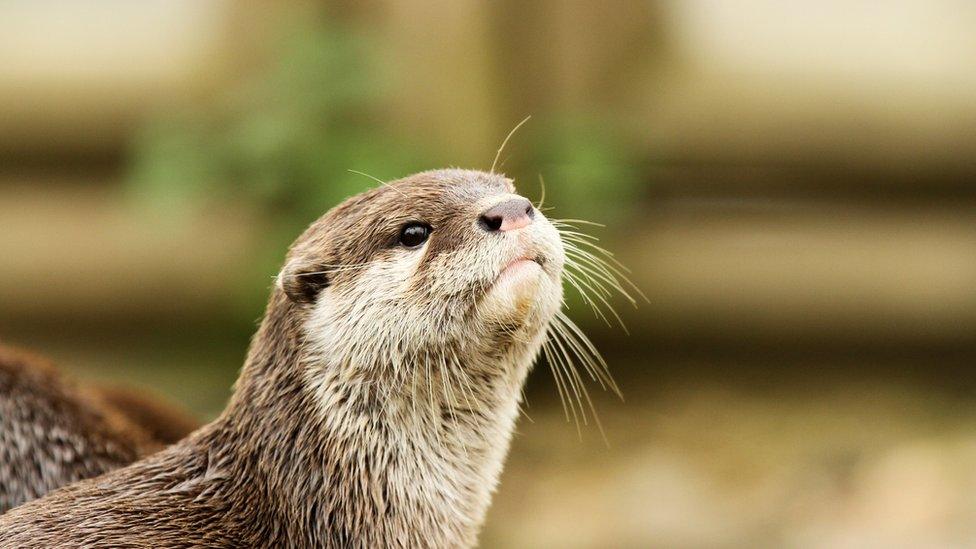
Experts will look at the waterways where otters live.
A recent study by Cardiff University looked at the livers of otters after they had died, and found a group of chemicals inside them.
The group of chemicals called PFASs are used in food wrappers, kitchenware and clothing to make them water and stain resistant.
The scientists found that these chemicals were "widespread" in British rivers, and said they are being polluted by waste water treatment plants and the use of sewage sludge as fertiliser in farming.
Liz Halliwell from NRW said they would keep an eye on the situation, to make sure the decline in otters does not keep happening.
The organisation - alongside the EA - is under scrutiny over its handling of river pollution investigations.
- Published14 March 2021
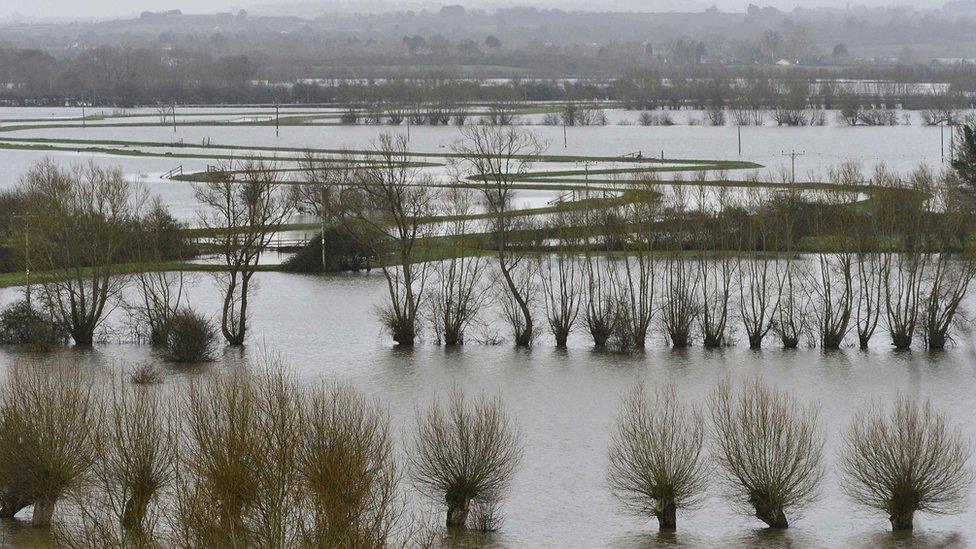
- Published12 November 2020

- Published21 October 2021
